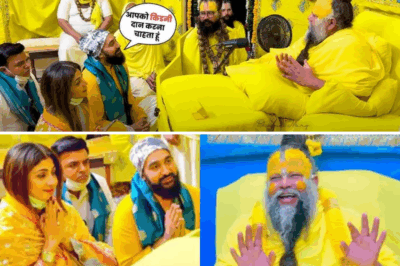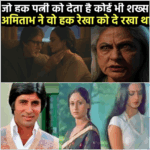Ex-Agniveer’s Emotional Appeal: “My Sacrifice Was Ignored—Is This the Value of Soldiers in New India?”

During the ongoing Voter Rights Yatra, Congress leader Rahul Gandhi used the story of Amar Nath, an ex-Agniveer, to highlight the struggles faced by young soldiers under the new Agniveer scheme. Drawing a parallel to the ancient story of Eklavya—who was forced to sacrifice his thumb—Rahul Gandhi introduced Amar Nath to the crowd, asking him to show his injured hand as a symbol of the sacrifices made by Agniveers.
Amar Nath, who served in the Medium Regiment and was injured during a field firing exercise at Pokhran, shared his ordeal with the audience. He explained that an explosion during duty severely damaged his hand, leading to the amputation of a finger and the weakening of nerves in his arm. After just two years of service, he was sent home with little support.
“Was it my fault? I faced the same bullets as permanent soldiers, so why am I treated differently?” Amar Nath questioned. He urged the government to recognize that changing the army’s structure without proper care for its soldiers is unfair. “If you change the army, then ask your enemies to change their bullets too,” he said, highlighting the risks Agniveers face without the security and benefits given to regular soldiers.
Amar Nath’s speech carried a strong message: “The Indian Army is the foundation of our country. If soldiers start protesting on public platforms, it means the nation is weakening.” He warned the Prime Minister not to underestimate the power of the armed forces, recalling how history has shown that when soldiers rise, even mighty rulers and empires have fallen.
He ended with a rallying cry: “We will reclaim our honor. These youth are standing for their rights, and we are standing for our army. Thank you.”
Rahul Gandhi’s use of Amar Nath’s story has intensified the debate around the Agniveer scheme, putting the spotlight on the government’s treatment of young soldiers and the future of India’s defense forces.
News
Hansika Motwani got emtional & Crying revealing sh0cking Truth of her Divorce💔with Sohael Khaturiya!
Hansika Motwani’s Marriage in Trouble? Cryptic Birthday Post Fuels Divorce Rumors Bollywood and television actress Hansika Motwani is making headlines…
Shilpa Shetty and Raj Kundra in Trouble: Mumbai Businessman Alleges ₹60 Crore Fraud
Shilpa Shetty and Raj Kundra in Trouble: Mumbai Businessman Alleges ₹60 Crore Fraud Shocking news has rocked Bollywood as actress…
From Little Krishna to Young Star: Where Is Dhriti Bhatia, The Child Actress from ‘Jai Shri Krishna,’ 17 Years Later?
From Little Krishna to Young Star: Where Is Dhriti Bhatia, The Child Actress from ‘Jai Shri Krishna,’ 17 Years Later?…
Raj Kundra Offers His Kidney to Premanand Maharaj—Receives a Heartwarming and Unexpected Spiritual Response
Raj Kundra Offers His Kidney to Premanand Maharaj—Receives a Heartwarming and Unexpected Spiritual Response In a touching moment that surprised…
Armaan Malik to Become Father for Fifth Time; Both Wives Delight in Pregnancy News Amid Social Media Buzz
Armaan Malik to Become Father for Fifth Time; Both Wives Delight in Pregnancy News Amid Social Media Buzz Armaan Malik,…
Copying Farah Khan? Govinda’s Wife Sunita Ahuja Creates a Buzz on YouTube: Emotional Debut Vlog Sparks Copycat Claims
Copying Farah Khan? Govinda’s Wife Sunita Ahuja Launches YouTube Vlog Channel With Her Servent Govinda’s Wife Sunita Ahuja Creates a…
End of content
No more pages to load












